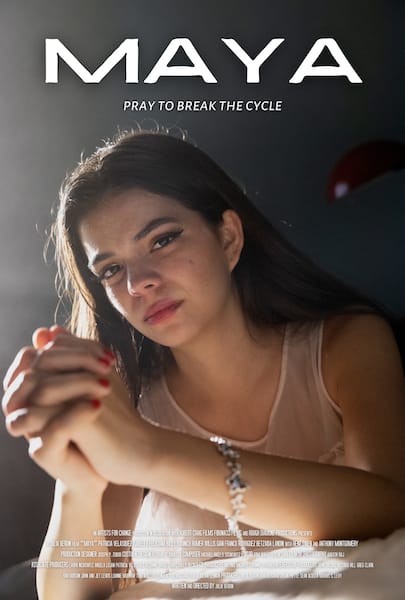On a hot, sunny day back in 1989, 11-year-old Sara Kruzan accepted an ice cream treat from a man she didn’t know. He was George Gilbert Howard, a man two decades older than her who lived in the same community.
George, who initially behaved as a father figure, saw that Sara was from an abused home—she was in the care of a single mother who physically assaulted Sara and allowed her boyfriends to molest her as well. At first, George gained Sara’s trust by ‘innocently’ taking her and her friends to the roller rink. Then, later that same year, he molested her too.
By 1991, when she was just 13, George began trafficking her, forcing her into prostitution on the streets of Hollywood, subjecting her to 11 different men on her first night of “work”, alone.
This abuse continued until she was able to get away with a boyfriend, who took her to live with his uncle. That uncle instructed Sara, under duress, to return to her pimp and rob him, but on the night she went back, George attempted to sexually assault her and she shot him dead. She was just 16 at the time.
Riverside Superior Court in California tried Sara as an adult. Unable to present her years of abuse as a defense, Sara was convicted of first-degree murder and sentenced to life in prison without parole.
Prison is where she remained until 2013, when she was released after former Governor Arnold Schwarzenegger had commuted her sentence to 25 years with the possibility of parole, and a judge subsequently reduced her charges to second-degree murder, which cut her sentence down to time served.
19 years of her life spent behind bars.
Earlier this month, Governor Gavin Newsom formally pardoned Sara, who since her release, has dedicated her life to prison reform advocacy.
Though Sara is finally receiving a measure of justice, many like her never will. Human trafficking remains the second largest criminal industry in the world, yielding $32 billion in the trade of human beings each year.
On this World Day Against Trafficking in Persons, the 2022 theme centres around the use and abuse of technology and its role in both luring new victims into slavery and selling the ‘services’ of those victims to paying clients.
Maya
Social media technology used as a tool for trafficking recruitment plays a key part in the plot of the upcoming film, Maya, directed by Julia Verdin. We were supporters of Julia’s previous film Angie: Lost Girls, which brought significant awareness to the trafficking issue, so when we heard she had a new film in the works to continue the fight against trafficking, I signed on as an Executive Producer, on behalf of The White Feather Foundation. Film is a powerful way to reach people’s hearts and we believe in its ability to inspire action that results in change.
Maya, currently in post-production, tells the story of a young girl in a broken home being raised by a single mother who has an abusive boyfriend. Seeking refuge from this situation, Maya develops an online friendship with Ray, a man who befriended her on social media and acts as a confidant. Soon, Ray encourages her to run away with him and begins trafficking Maya to his clients, as her mother despairs that she’s lost her, and works to get her back.
Will her mother be able to lift Maya out of this life of slavery? Or will Maya be forever gone to this dark world of trafficking?
Stay tuned for more information about the film and where to watch it once it’s released.
How to Help
Here are just a few ways to help prevent trafficking, and support victims and survivors worldwide:
- The Blue Heart Campaign aims to raise awareness and inspire action to prevent trafficking.
- Love 146 has free webinars, videos, caregiver guides and more available to help you keep the youth in your life safe.
- Unitas offers free downloadable resources to fight human trafficking.
- The notforsale campaign works to combat human trafficking online and in several places around the globe.
- In the U.K., report trafficking based on the guidance provided at Citizens Advice (find links for Northern Ireland, Scotland and Wales on the same page).
- In the U.S., send tips anonymously to the National Human Trafficking Hotline.
- In Australia, notify the Australian Federal Police directly of potential victims.
- In Canada, call the Human Trafficking Hotline at 1-833-900-1010 with tips.
- In India, call the numbers listed at Indiantribalheritage.org.
For all other countries, please check with your local authorities for the best way to take action.
If we all spread awareness and take action to prevent trafficking, together we can put an end to this devastating abuse.


